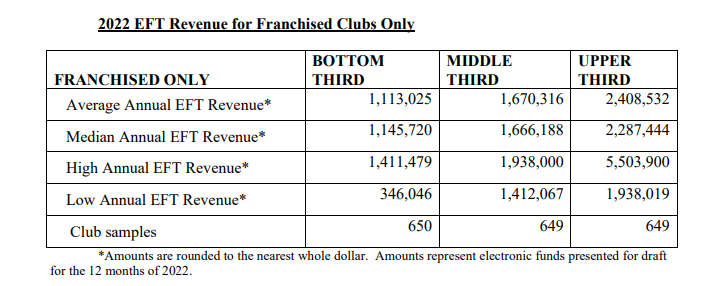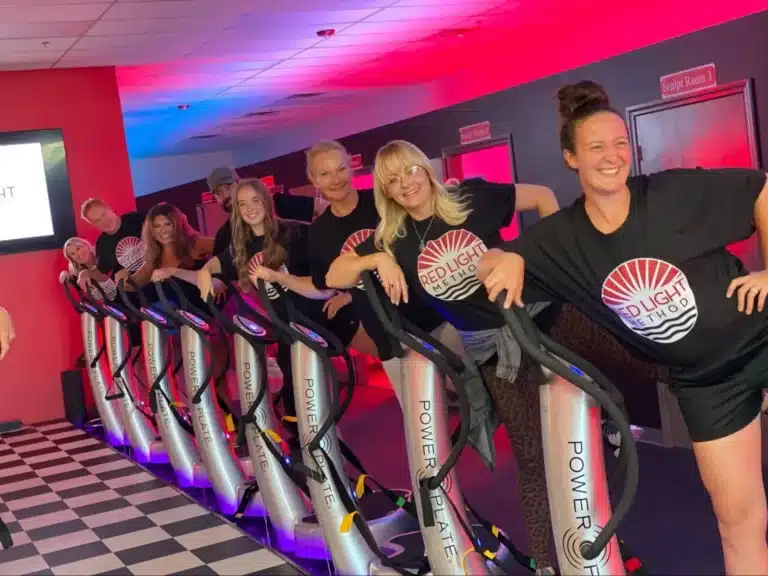Planet Fitness Franchise FDD, Profits & Costs (2025)

Planet Fitness, founded in 1992, is one of the largest and fastest-growing fitness franchises in the U.S. It boasts a high number of members and locations across the country.
Headquartered in Hampton, New Hampshire, Planet Fitness began franchising in 2000. The brand focuses on providing a welcoming fitness experience in its well-known Judgement Free Zone®.
Planet Fitness stands out by promoting inclusivity, with 40% of its members being first-time gym-goers. This approach makes it unique in the fitness industry, catering to a diverse range of people and fostering accessibility.
Initial Investment
How much does it cost to start a Planet Fitness franchise? It costs on average between $1,515,000 – $5,141,000 to start a Planet Fitness franchised studio.
This includes costs for construction, equipment, inventory, and initial operating expenses. The exact amount depends on various factors, including the type of facility you choose, the location, and whether the franchisee chooses to lease or purchase the property.
| Type of Expenditure | Amount |
|---|---|
| Initial Franchise Fee | $20,000 |
| Site Selection Costs | $0 to $10,000 |
| Construction Development Plan Review Fee | $0 to $4,000 |
| Leasehold Improvements | $1,250,000 to $2,221,000 |
| Fitness Equipment | $41,000 to $1,026,000 |
| Non-Fitness Equipment | $49,000 to $919,000 |
| Pre-Sale/Grand Opening Marketing | $40,000 to $80,000 |
| Exterior Signs | $14,000 to $67,000 |
| Computer System, Point of Sale System, and other Supplies | $2,000 to $11,000 |
| Insurance | $15,000 to $35,000 |
| Real Estate Lease Deposits | $0 to $87,000 |
| Other Deposits | $0 to $46,000 |
| Professional Fees | $2,000 to $25,000 |
| Out-of-Pocket Initial Training Expenses | $1,500 to $7,500 |
| Licenses/Bonds | $100 to $5,000 |
| Additional Funds – six months | $78,000 to $578,000 |
| Total | $1,515,000 to $5,141,000 |
Average Revenue (AUV)
How much revenue can you make with a Planet Fitness franchise? A Planet Fitness franchised studio makes on average $1,699,000 in revenue (AUV) per year.
Here is the extract from the Franchise Disclosure Document:

This compares to $1,173,000 yearly revenue for similar gym franchises. Below are 10 Planet Fitness competitors as a comparison:

Download the Franchise Disclosure Document
Frequently Asked Questions
How many Planet Fitness locations are there?
As of the latest data, Planet Fitness operates over 2,400 locations globally. The vast majority of these are franchise-owned, with approximately 95% of all Planet Fitness locations being operated by franchisees.
The remaining 5% are corporate-owned gyms, which are directly managed by Planet Fitness. This mix allows for rapid expansion while maintaining some control over key locations.
What is the total investment required to open a Planet Fitness franchise?
The total investment required to open a Planet Fitness franchise ranges from $1,515,000 to $5,141,000.
What are the ongoing fees for a Planet Fitness franchise?
Planet Fitness franchisees are required to pay a 7% royalty fee on gross sales. Additionally, there is a 2% National Advertising Fund (NAF) fee on gross sales, which covers national advertising efforts.
Franchisees are also required to spend 1-2% of gross sales on local advertising to support marketing efforts in their specific location. These fees help maintain brand consistency and support franchisees with marketing and operational resources.
What are the financial requirements to become a Planet Fitness franchisee?
To qualify as a Planet Fitness franchisee, you need a minimum net worth of $3 million and at least $1.5 million in liquid assets. These financial requirements ensure that franchisees have the resources necessary to operate their business successfully and cover initial startup costs, including equipment and operational expenses.
How much can a Planet Fitness franchise owner expect to earn?
The average gross sales for a Planet Fitness franchise are approximately $1.7 million per location. Assuming a 15% operating profit margin, $1.7 million yearly revenue can result in $254,850 EBITDA annually.
Disclaimer
Disclaimer: This content has been made for informational and educational purposes only. We do not make any representation or warranties with respect to the accuracy, applicability, fitness, or completeness of the information presented in the article. You should not construe any such information or other material as legal, tax, investment, financial, or other professional advice. Nothing contained in this article constitutes a solicitation, recommendation, endorsement, advertisement, or offer to buy or sell any franchises, securities, or other financial instruments in this or in any other jurisdiction in which such solicitation or offer would be unlawful under the franchise and/or securities laws of such jurisdiction.
All content in this article is information of a general nature and does not address the detailed circumstances of any particular individual or entity. Nothing in the article constitutes professional and/or financial and/or legal advice, nor does any information in the article constitute a comprehensive or complete statement of the matters discussed or the law relating thereto. You alone assume the sole responsibility of evaluating the merits and risks associated with the use of any information or other content in this article before making any decisions based on such information or other content.




